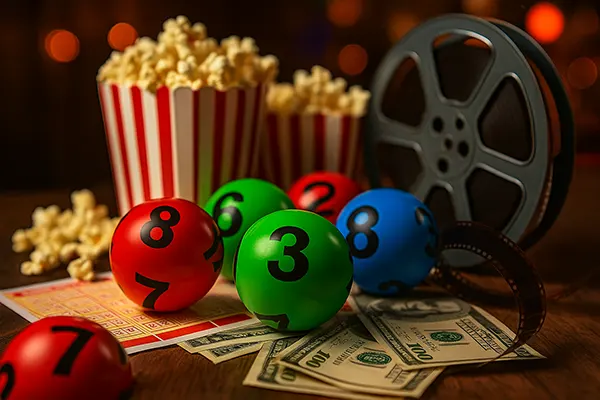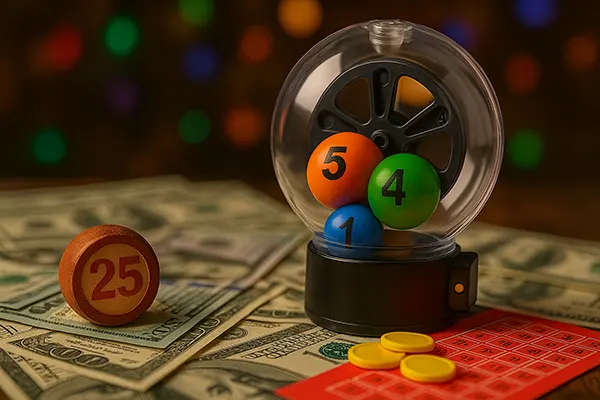
Lotteries as an Element of Pop Culture and Media
Lotteries have long transcended the boundaries of simple gambling, becoming cultural phenomena that influence entertainment, storytelling, and even social identity. In modern times, they are no longer viewed solely as a means of winning money but as symbolic elements woven into films, television, literature, and digital media. Their presence in pop culture demonstrates the way chance, luck, and fortune continue to fascinate societies worldwide, particularly in an age where mass communication amplifies their significance.
Lotteries in Cinema and Television
Since the early days of cinema, lotteries have played a recurring role in shaping narratives. Films often portray the lottery ticket as a metaphor for hope, destiny, or sudden change in fortune. From comedies to dramas, screenwriters use this device to explore human dreams and anxieties. In the 1994 classic “It Could Happen to You,” for example, the story revolves around a winning ticket that alters the lives of strangers, showcasing the unpredictability of life.
Television series also capitalise on lottery themes. Episodes frequently feature characters who suddenly acquire wealth through a lucky draw, creating tension around how money affects relationships. British dramas and American sitcoms alike highlight both the joy and challenges that accompany sudden financial gain, making lotteries a recognisable trope across genres.
Streaming services in 2025 have continued this trend, with documentaries exploring real stories of winners and the social consequences of their newfound fortunes. These productions not only entertain but also raise questions about economic disparity, social mobility, and the psychological impact of wealth.
Representation of Winners and Losers on Screen
Media depictions of lottery winners often oscillate between fantasy and cautionary tale. Some productions celebrate the idea of dreams coming true, while others depict the darker side of sudden wealth, such as isolation or exploitation. This duality makes lotteries an effective storytelling tool, reflecting society’s ambivalence towards money and chance.
Losers, on the other hand, are often portrayed as everyman figures—individuals who continue with ordinary lives, symbolising resilience and humour. This balance between winners and losers sustains the lottery’s relevance as a dramatic device, resonating with wide audiences who understand the slim odds yet still relate to the universal dream of “what if.”
By 2025, the narrative has shifted towards more balanced portrayals, acknowledging that not every winner achieves happiness, and not every non-winner is left unfulfilled. This nuanced approach reflects broader cultural maturity in handling themes of wealth and fortune.
Lotteries in Literature and Music
Literary works have long drawn on the symbolic power of lotteries. From Shirley Jackson’s chilling short story “The Lottery” to modern novels exploring economic struggles, the lottery often functions as a mirror of societal values. Authors use it to discuss fairness, morality, and collective psychology. Its role in literature extends beyond plot, offering allegories of human nature and societal tension.
In music, references to lotteries appear across genres, from folk songs to contemporary rap. Artists often use lottery metaphors to address themes of risk, ambition, and unpredictability. Lyrics describing “winning the lottery” are not merely about money but about achieving success against the odds, reflecting the hopes of communities facing economic hardship.
By 2025, these cultural references continue to evolve, with digital music platforms amplifying songs that incorporate lottery symbolism. Such tracks resonate globally, transcending language and geography, reinforcing the lottery as a universal cultural marker.
Symbolism in Lyrics and Storytelling
In many cases, lottery references in music serve as metaphors for love, opportunity, or fate. This versatility has allowed artists to adapt the concept to diverse audiences and cultural settings. For example, a pop artist may liken romance to buying a ticket, while a hip-hop performer may use it to highlight the unpredictability of success in the music industry.
Literature continues to present the lottery as both a promise and a threat. Writers explore not only the outcomes of winning but also the psychological weight of participation. This symbolism resonates with readers who see the lottery as a reflection of broader struggles between chance and control in everyday life.
Ultimately, the continued presence of lotteries in creative writing and music underscores their symbolic depth, ensuring they remain embedded in cultural consciousness.

Lotteries in Digital Media and Social Networks
The digital age has further entrenched lotteries into global culture. Platforms like Instagram, TikTok, and YouTube feature countless stories of winners, whether real or imagined, that capture the imagination of millions. Viral challenges and memes frequently employ lottery themes, creating instant recognition and engagement among younger audiences.
Social networks have also amplified debates about fairness, accessibility, and the ethical dimensions of state lotteries. Discussions often revolve around the use of lottery revenues for public services, including education and healthcare, highlighting their role as more than entertainment—they are social institutions with tangible consequences.
By 2025, online communities have normalised sharing personal experiences with lotteries, from buying the first ticket to reflecting on missed opportunities. These narratives create collective spaces where individuals connect through shared dreams and outcomes, reinforcing the idea that lotteries are cultural experiences as much as economic events.
Memes, Influencers, and Online Communities
Lottery culture thrives in the meme economy. Humorous posts about improbable odds or imagined winnings circulate widely, making the lottery a light-hearted yet persistent element of digital humour. These memes bridge generations, as older players and younger digital natives alike recognise the universal appeal of “what could be.”
Influencers also contribute to the popularity of lotteries in online spaces. By documenting ticket purchases, live draws, or speculative conversations, they transform a personal act into public content. This visibility sustains curiosity and ensures that the lottery remains part of everyday conversation in online culture.
Finally, online communities dedicated to discussing strategies, outcomes, or personal stories illustrate the participatory nature of modern lottery culture. These spaces demonstrate how digital media transforms the lottery from an individual pursuit into a collective dialogue.
